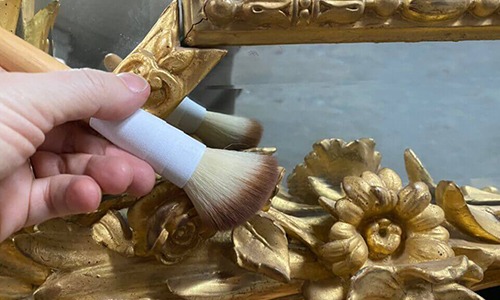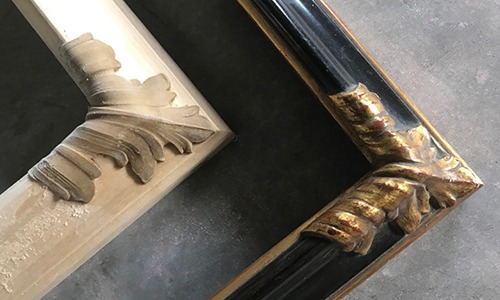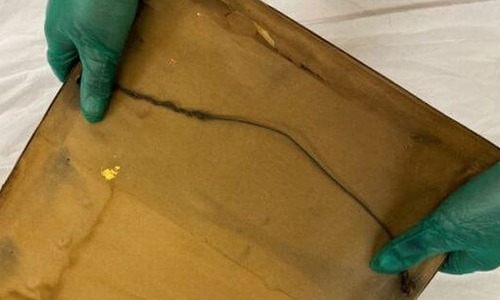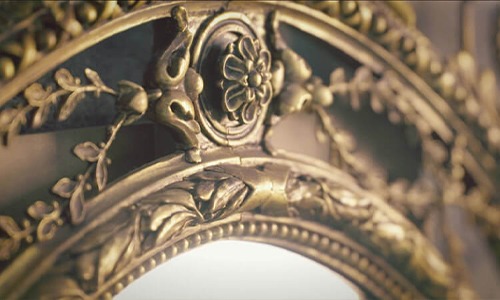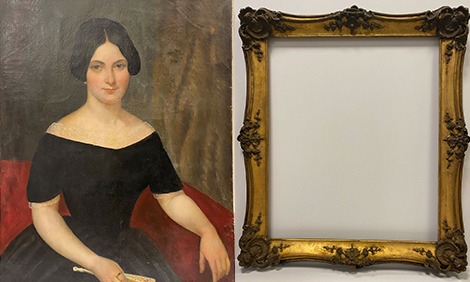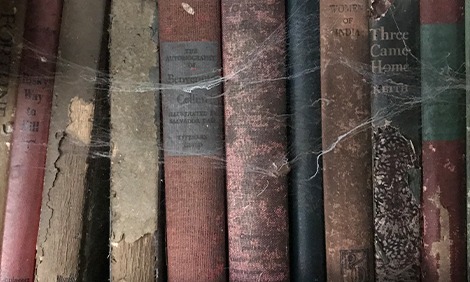The Recovery of a thomas hart benton
The Recovery and Treatment of a Thomas Hart Benton After a Flood
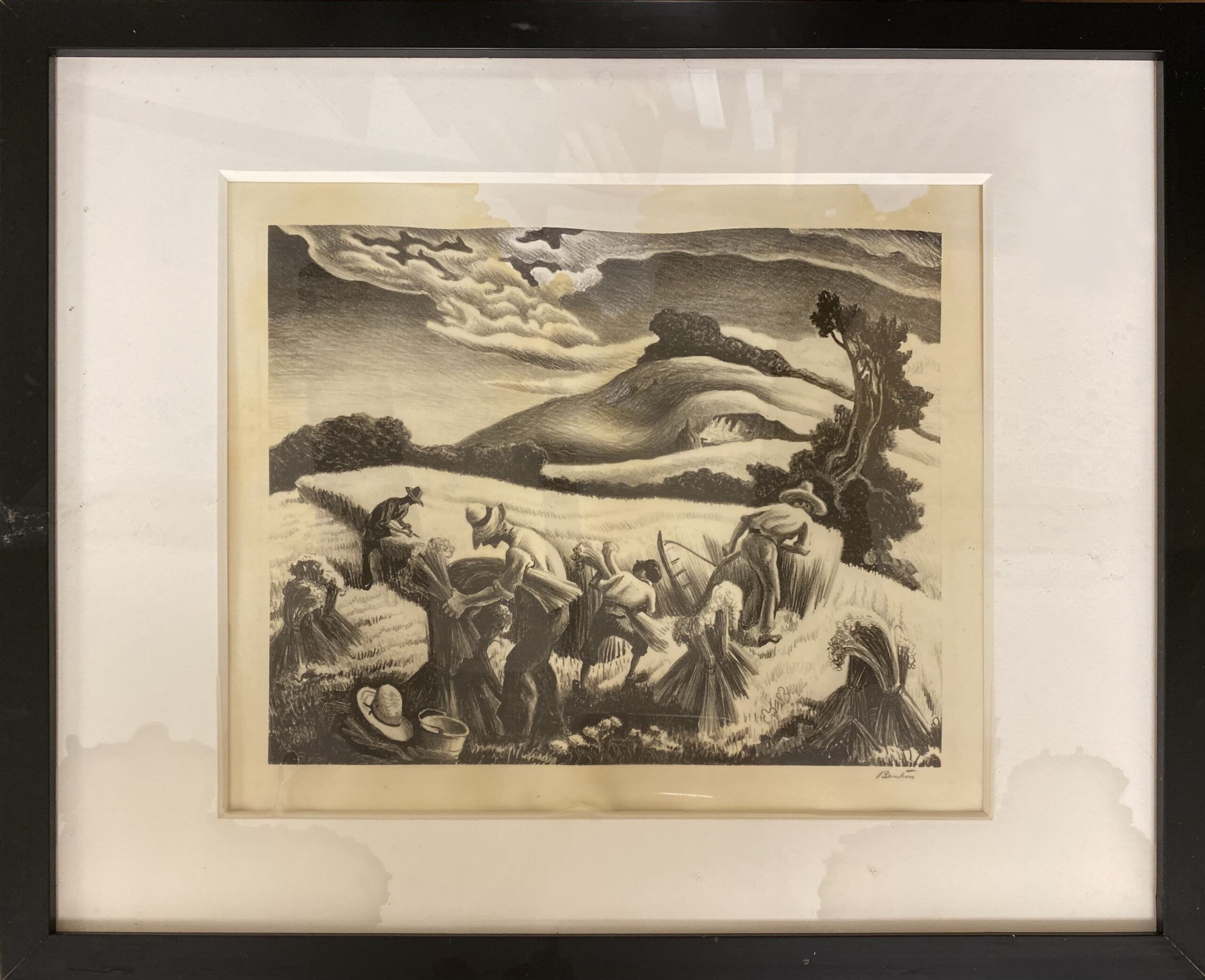
Cradling Wheat. Thomas Hart Benton (American, 1889-1975). 1939. Lithograph on white wove paper. 17 ½ in. x 21 ½ in. Signed in pencil. Edition of 250. Before treatment, framed.
This Thomas Hart Benton lithograph, “Cradling Wheat,” was published as an edition of 250 in 1939 by Associated American Artists. Benton was known for his harmonious compositions elevating everyday life and exploring the relationship of man and nature, but when nature took a turn for the worse this piece was put at risk of being lost to a flood.
Art Recovery and Triage
When environmental disasters occur, time is of the essence to recover art so that it may be triaged, stabilized, and evaluated in order to develop a treatment plan that may restore special pieces. This editioned print was recovered by our team after a flood where it was found fully saturated. The water had infiltrated the framing materials which had begun to fall out of the frame, and the frame joins were so weakened that the piece could not be handled upright. In order to expedite the recovery process, the back of the frame was supported to prevent further damage, and the piece was transported back to the studio for immediate triage.
While a frame protects artwork, having a wet piece inside a frame creates a microclimate, which inhibits drying, and creates the opportunity for mold to develop. It was imperative that the print be removed from the frame to mitigate that risk, however, given the sensitivity of wet paper, the sheet needed to be carefully removed in order to avoid tearing and creasing the print. Once safely at our studio, the wet sheet was methodically removed from the frame with special attention paid to the lifting of the existing linen tape which previously secured the sheet to its damaged ragboard mount. After the print was stabilized the extent of the damage to the work could be evaluated by our paper conservators who would devise a plan to recover this Depression-era work.
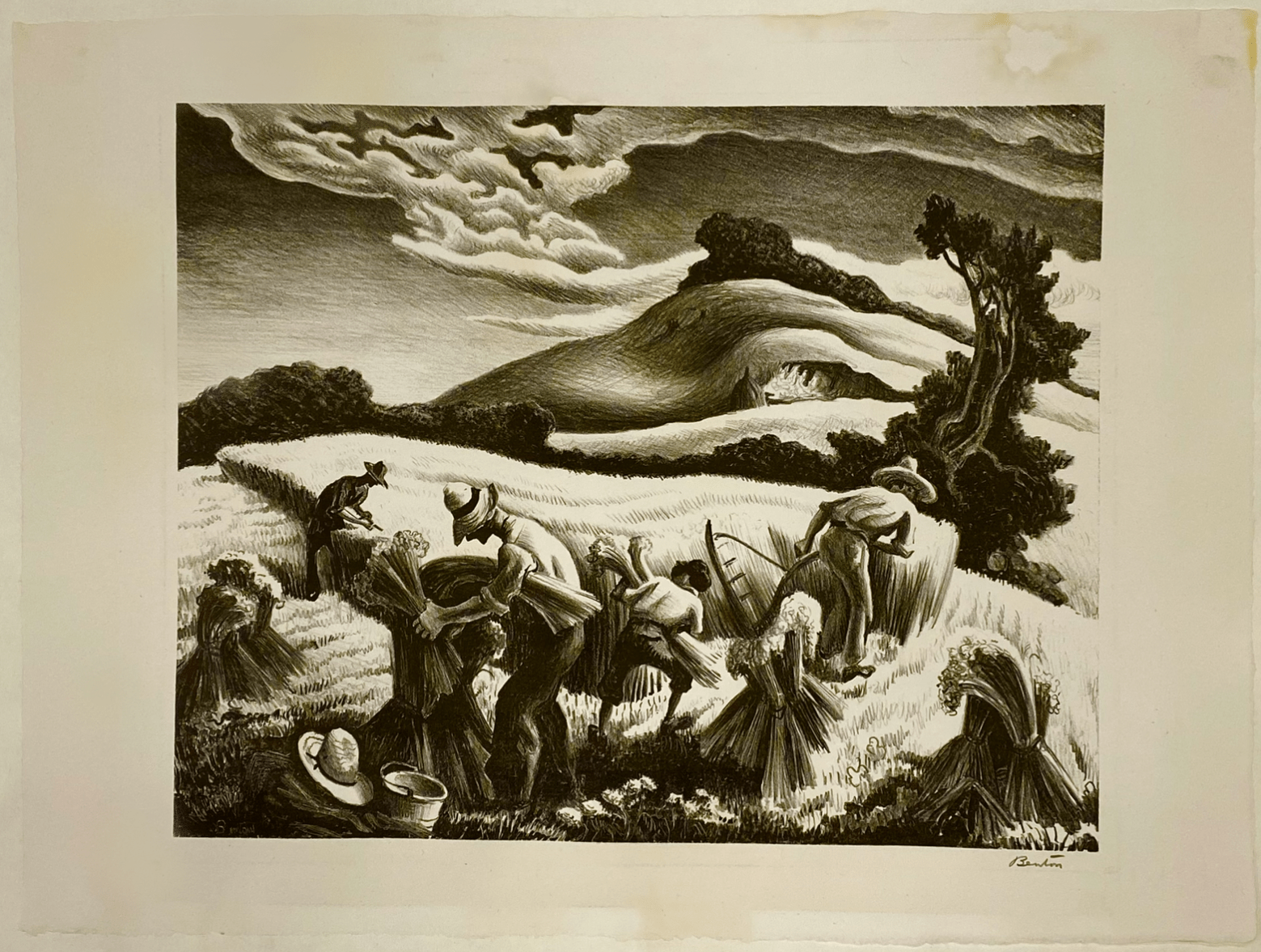
Cradling Wheat. Thomas Hart Benton (American, 1889-1975). 1939. Lithograph on white wove paper. 17 ½ in. x 21 ½ in. Signed in pencil. Edition of 250. Unframed before treatment.
Benton, an American Regionalist
Thomas Hart Benton (American, 1889-1975) was a native of Missouri who studied at the Art Institute of Chicago and then further developed his style in Paris. Along with Grant Wood and John Steuart Curry, Thomas Hart Benton is part of the American Regionalism movement of the 1930s and 40s. During a time of economic depression, American Regionalist scenes of rural life and everyday situations connected with people who rejected modern industry and wanted to return to the simplicity of the heartland where many found hope. Benton instilled this harvest scene with a flowing landscape bringing the lives of the workers to the forefront and conveying their significance. Editions of the “Cradling Wheat” lithograph, of which there exist 250, are in the permanent collections of the Art Institute of Chicago, Carnegie Museum of Art, de Young Museum, and Philadelphia Museum of Art.
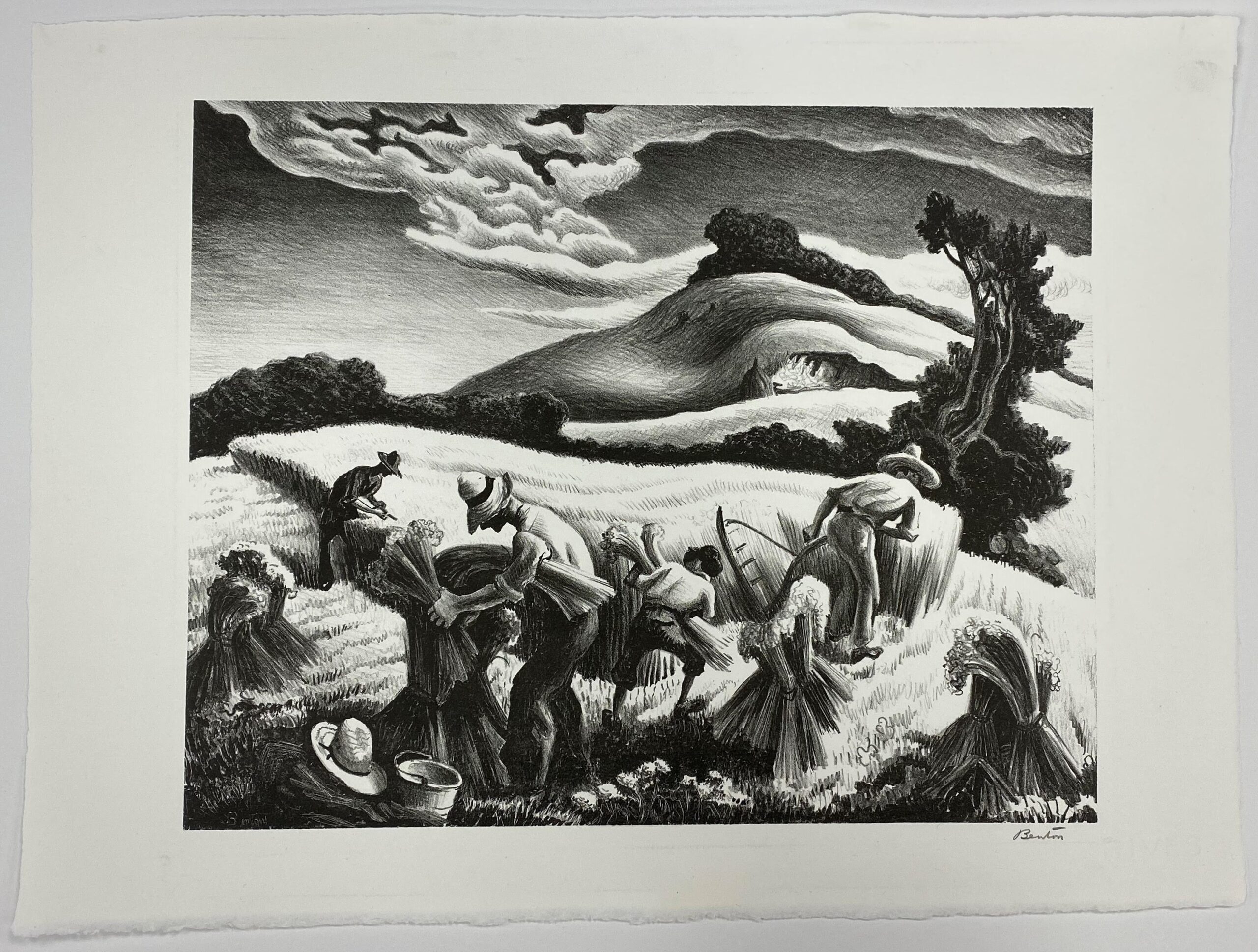
Cradling Wheat. Thomas Hart Benton (American, 1889-1975). 1939. Lithograph on white wove paper. 17 ½ in. x 21 ½ in. Signed in pencil. Edition of 250. Unframed after treatment.
Paper Conservation Treatment and Archival Framing
With the sheet freed, the adhesive residue from the linen tapes was reduced. The lithograph was water washed to remove the water staining and discoloration, and then passively humidified to relax the sheet. Once the washing was complete, the sheet was dried and flattened between a series of cotton blotters reducing distortion and restoring it to a condition that would allow for successful new mounting and framing procedures.
Upon completion of the conservation, the treated lithograph was secured to a pH-neutral ragboard support using an archival combination of Japanese kōzo tissue and methylcellulose hinges. Once properly hinged, the sheet was installed into a new frame with an 8ply white ragboard mat, UV-filtering glass, and a moisture-resistant backboard. The materials were encapsulated as a tidy package to provide additional protection from moisture intrusion in the future. When framing a work of art on paper, using reversible hinging and archival materials can not only help protect from environmental risks such as light, water, humidity, dust, and airborne pollutants but can also help facilitate conservation efforts in the future if needed.
With timely handling and care, Thomas Hart Benton’s lithograph was successfully treated and returned to pre-loss condition. Works on paper are more durable than most think, and they often respond well to conservation efforts.
If you have questions about conservation of water damage to fine art, or museum quality archival picture framing,
please contact us.

312-344-0331
info@artifactservices.com
Our collection of educational articles about
custom framing, collection care, and emergency response are updated regularly.
Click on each topic below for a menu of corresponding articles.
Collection Care Articles
By April Hann Lanford
Our collection of educational articles provides an introduction to many topics about the preservation and conservation of fine art, antiques, and fine furniture.
Topics are often written as a result of questions provided by our clients.
Emergency Care Articles
By April Hann Lanford
Our emergency care articles are a helpful introduction to how to prevent damage through preventative measures or art and antique collections. When a disaster strikes, prompt response and taking the right steps can mitigate further damage.
Antique Trader Articles
By April Hann Lanford
Visit our collection of articles that have been published in Antique Trader.
antiquetrader
For more than 60 years Antique Trader has been inspiring, informing, and entertaining the collecting community with timely...
Projects
By April Hann Lanford
A selection of Artifact’s most recent projects highlighting our conservation and preservation work. We present each unique story describing the conservation process from reviewing the history, cause of loss, and condition to the steps of the treatment.
Glossary
A collection of art and conservation terms along with makers and firms compiled into a glossary and highlighted throughout our website for reference.
We are available to assist you
Main Location
840 N. Milwaukee Ave, Chicago IL 60642
Mon-Fri: 9:00 am - 5:30 pm
Sat: 10:00 am-4:00 pm
Sun: Closed
Complimentary parking is available in the loading zone in front of the building
We can also serve you by appointment at our other locations in the Chicagoland area.
Additional Locations
Schiller Park • Highland Park • Lake Forest • Lincoln Park • Nashville, TN
Copyright 2024, Artifact Services, LLC | An Artmill Group Company
